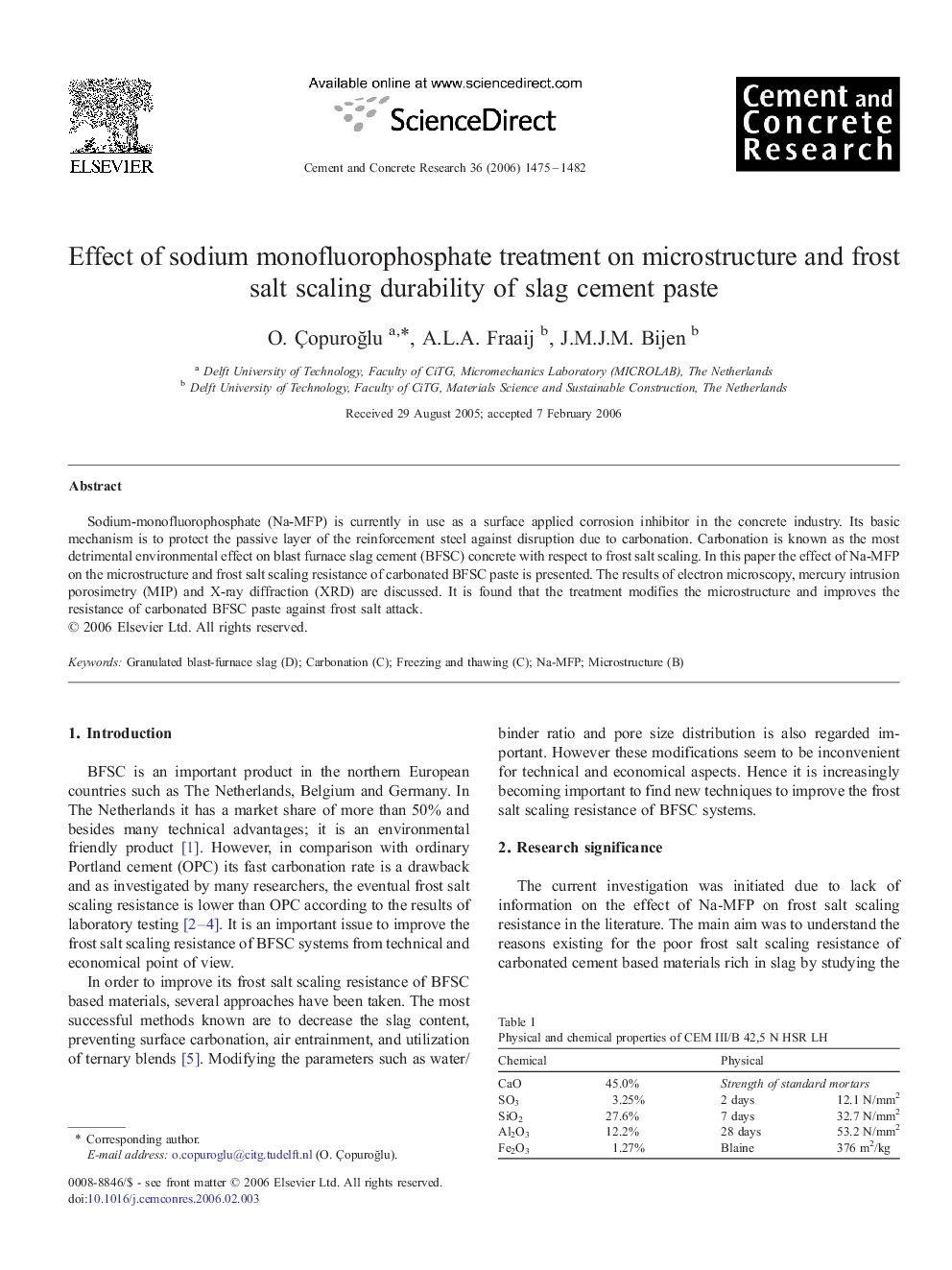| Article ID | Journal | Published Year | Pages | File Type |
|---|---|---|---|---|
| 1458008 | Cement and Concrete Research | 2006 | 8 Pages |
Abstract
Sodium-monofluorophosphate (Na-MFP) is currently in use as a surface applied corrosion inhibitor in the concrete industry. Its basic mechanism is to protect the passive layer of the reinforcement steel against disruption due to carbonation. Carbonation is known as the most detrimental environmental effect on blast furnace slag cement (BFSC) concrete with respect to frost salt scaling. In this paper the effect of Na-MFP on the microstructure and frost salt scaling resistance of carbonated BFSC paste is presented. The results of electron microscopy, mercury intrusion porosimetry (MIP) and X-ray diffraction (XRD) are discussed. It is found that the treatment modifies the microstructure and improves the resistance of carbonated BFSC paste against frost salt attack.
Related Topics
Physical Sciences and Engineering
Engineering
Industrial and Manufacturing Engineering
Authors
O. ÃopuroÄlu, A.L.A. Fraaij, J.M.J.M. Bijen,
